Have you been wondering what and how to eat for a better world? Here is some recommended reading.
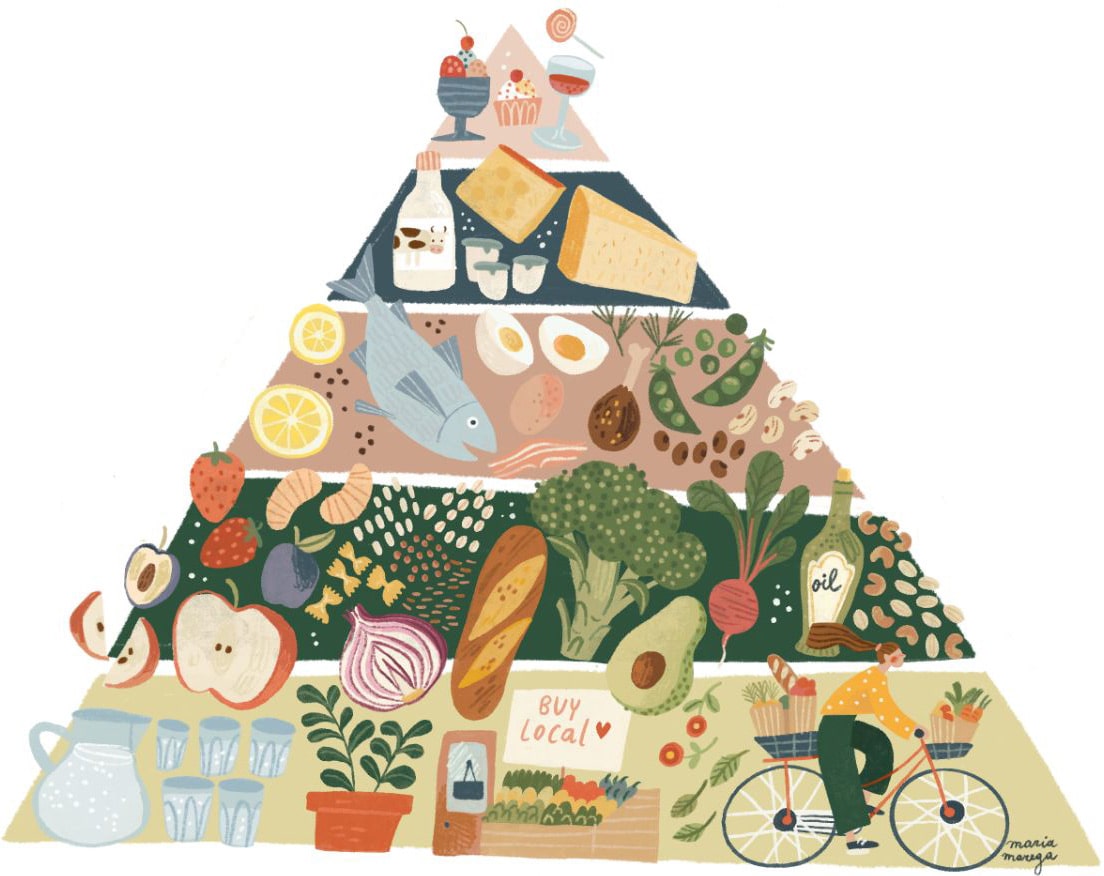
It is a widely demonstrated fact that a mediterranean diet offers proven advantages in terms of health, but this is not just about a style of cooking. It is a style of living, of behaviour, at the table and towards the territory and the environment we live in.
This is a concept that husband and wife Ancel and Margaret Keys grasped in the 1950s, when they decided to come to Italy, more specifically to Cilento, to carry out the first studies on the diet and lifestyle of our centenarians who were immune to the obesity and related cardiovascular diseases that were beginning to afflict their American compatriots. Despite being a physiologist and a chemist, they performed a great work of antropology, studying all the facets of the territory and codifying what we now call the "Mediterranean diet".
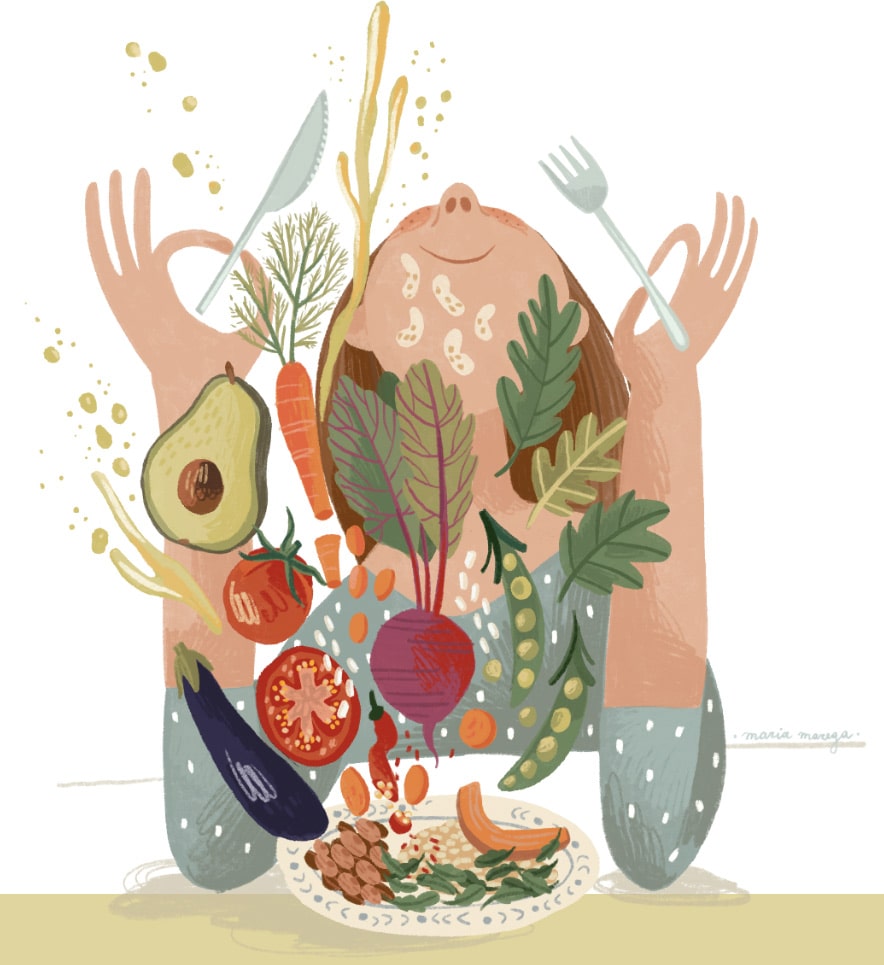
Today this has become a global challenge, and again in Campania, more specifically at the UNESCO seat for Health Education and Sustainable Development at the University of Naples, led by Dr. Annamaria Colao, they have set themselves the goal of expanding the healthy and sustainable food model, based on the key concepts of the Mediterranean diet, adapting it to the local contexts in different parts of the world.
This is how the "Planeterranean" diet was created: a new dietary model in line with the Sustainable Development Goals set by the United Nations in their 2030 Agenda, and with the principles of the circular economy.
Indeed, it wouldn't be sustainable to try to export the Mediterranean dietary model exactly as it is, but the idea is instead to export the foundations of lifestyle and behaviour that are reproducible anywhere: consuming plant-based products that are local and in season, regular physical activity, conservation of biodiversity, conviviality and socialising.Therefore, the most feasible solution seems to be that every country rediscovers its own heritage, in order to develop a healthier dietary model based on traditional local foods. According to the results found by University of Naples researchers, it should be possible to obtain healthy results by combining different foods belonging to each country, with significant advantages not only for people, but also for the environment.
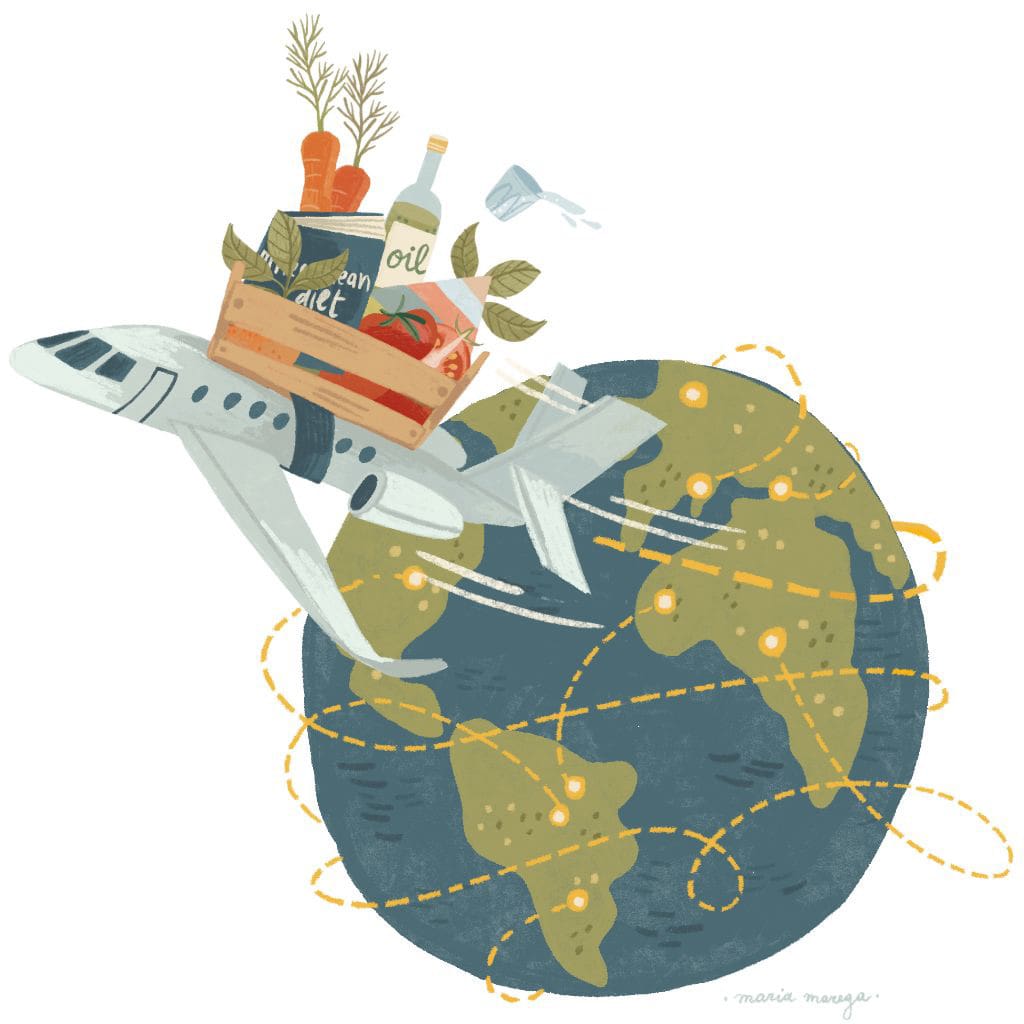
We spoke about this with Dr. Annamaria Colao, a full professor at Federico II University's Department of Clinical and Surgical Medicine, and president of the Italian Endocrinology Society.
"Planeterranean is a concept that came to me when I received a comment on an article written during Covid on the importance of a Mediterranean diet to counteract inflammatory processes, and a Brazilian colleague pointed out that in Brazil the Mediterranean diet doesn't exist. This made me think about the idea that the concept of the Mediterranean diet could be exported all over the world, not through its products, but primarily through its principles. We shouldn't limit ourselves to exporting our raw materials and delicacies; we can export our ideas, the ways we cook and behave, and our lifestyle."
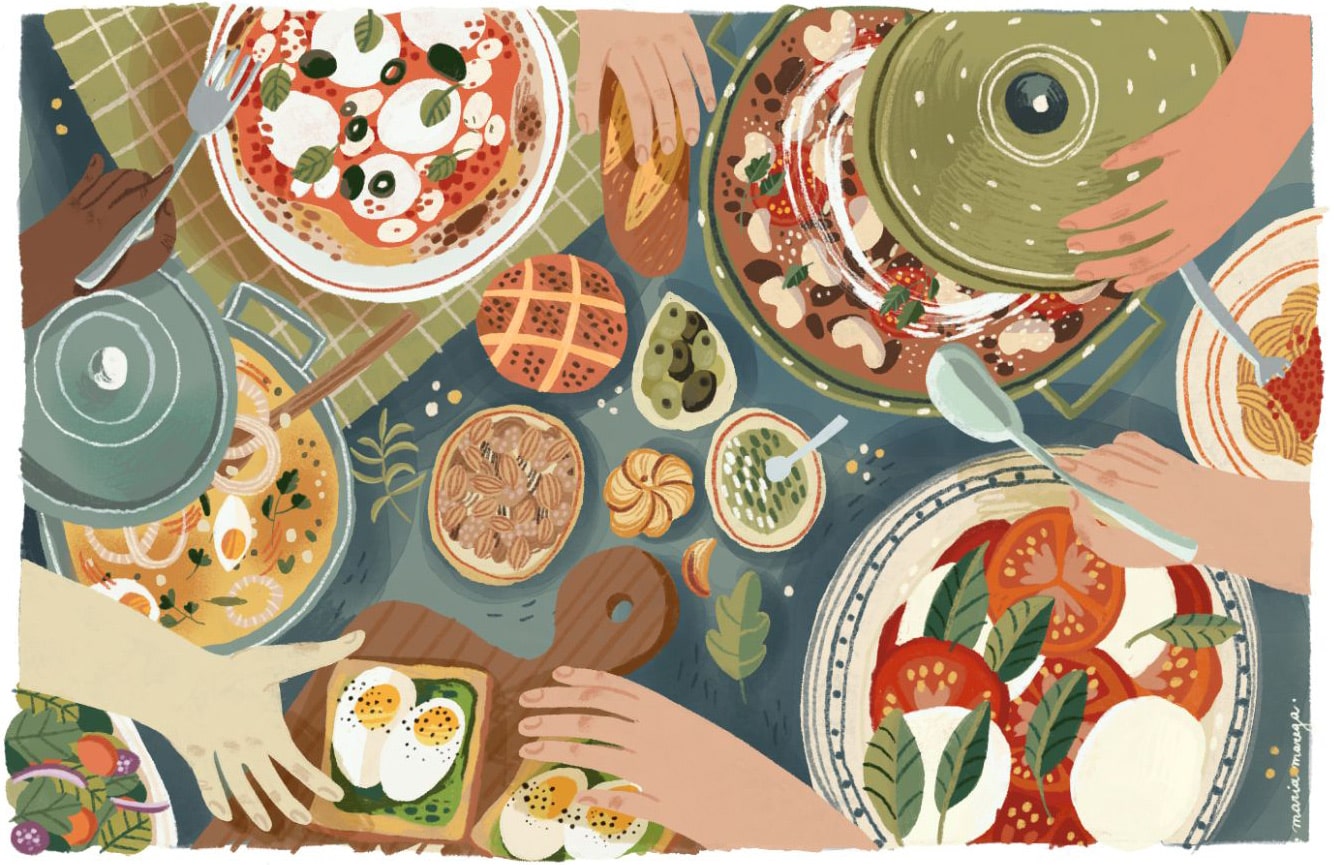
"A practical example could be represented by the pyramid we all know. The simplified graphic of the guiding principles for a healthy diet. Let's remember that Hippocrates, 2500 years ago, was already saying: "Let food be your medicine"; if we learn to use food not only for its nutritional value, but also its curative value, we are already one step ahead. We can adopt a planeterranean style in any part of the world where we find ourselves, we just need to remember the principles of the food pyramid, which, through a simple image, shows us the foundations of a healthy diet: do plenty of physical exercise every day, drink plenty of water, use a large amount of fresh vegetables seasoned with vegetable oil and portions of wholegrain carbohydrates that are in proportion to our level of physical exercise, and choose noble proteins and a portion of fresh fruit or nuts as a snack."
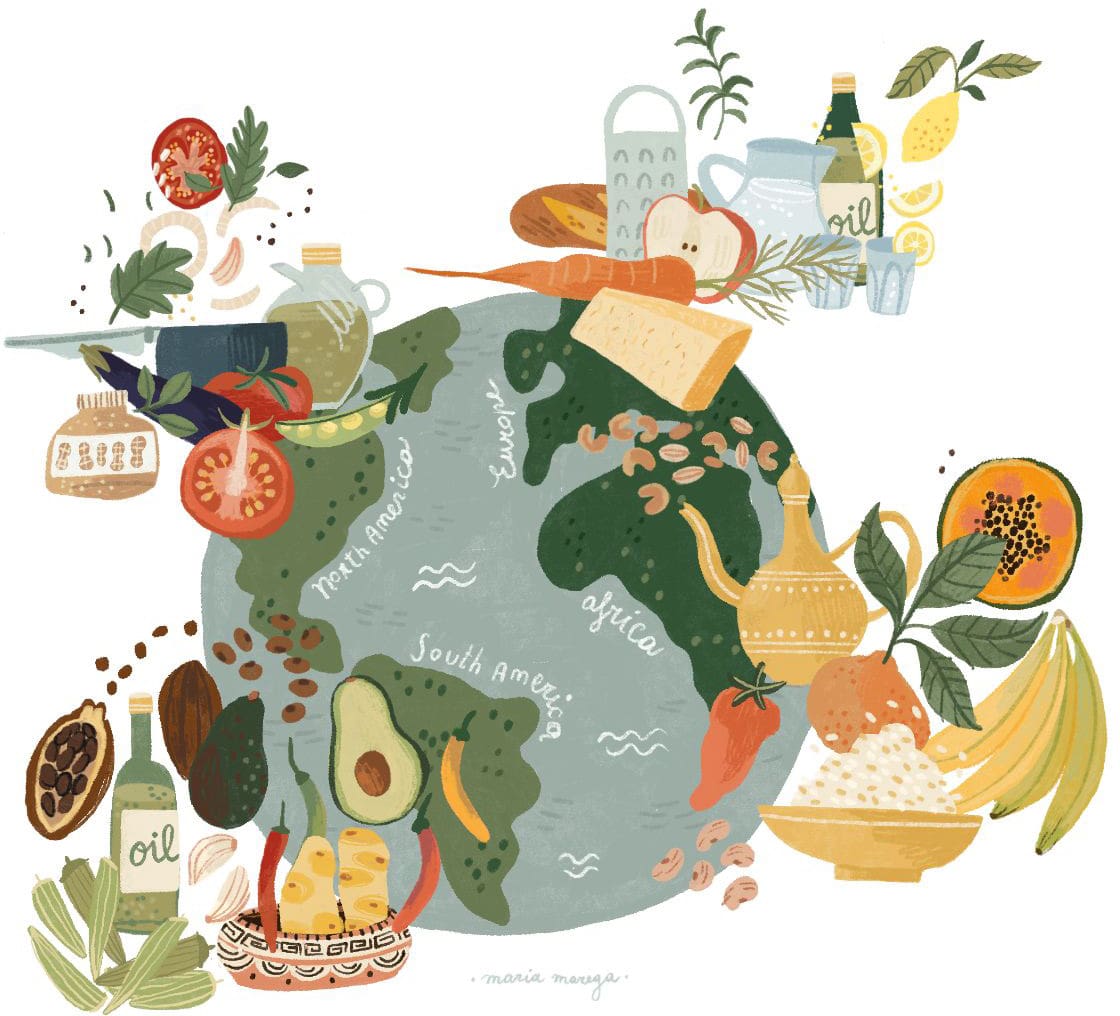
In the study presented in the science journal Nature by Dr. Colao's team, they have already indicated a few local foods - divided by macro-region - to prioritise, and in what quantities.
The study offers concrete solutions, and indicates for each continent and geographical area which are the foods to choose in order to adopt a diet that is more in line with health guidelines, encouraging the use of local products with the same nutritional properties as those present in the Mediterranean basin. In North America, for example, they suggest canola oil, which has strong cholesterol-lowering properties, pecan nuts, okra (which is also the main ingredient in gumbo, a popular American dish that is traditional in Louisiana) and borlotti beans. In Latin America, quinoa should be chosen over other cereals, because it has a low glycaemic index, along with plantains, avocado, and açai berries, with their high level of antioxidants.
"Along with my staff, we are embarking on collaborations all over the world; we are currently working with Athens, Harvard and Milan Universities. The most important job is mapping the various types of products around the world in order to be able to rewrite history and create a food pyramid that is correct according to the products found all over the world. We have already catalogued the products in Africa and South America, and we are working on Asia to create an inventory of products and suggest feasible frameworks, area by area, that can represent the style of the Mediterranean diet. We Mediterraneans have had the advantage of being born and raised in an area with such a wealth of food, so it is time we committed to extending this good fortune to the rest of the world."
Images Credits:
© illustrations by Maria Marega
Have you been wondering what and how to eat for a better world? Here is some recommended reading.
Discover the Food Bank programme: the chain of giving that creates a balance between excess food and food shortages, with a social, anti-waste message.
